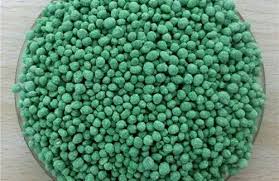
Nov . 13, 2024 17:37 Back to list
best lemon tree fertilizer organic
The Best Organic Fertilizers for Lemon Trees
Lemon trees, with their luscious fruits and fragrant blossoms, are a delightful addition to any garden. However, to ensure that these vibrant trees thrive, using the right fertilizers is crucial. Organic fertilizers are not only environmentally friendly but also promote healthy growth and enhance the flavor of the lemons. In this article, we will explore the best organic fertilizers for lemon trees and how to use them effectively.
Understanding Nutrient Needs
Before choosing a fertilizer, it's essential to understand that lemon trees require a balance of nitrogen, phosphorus, and potassium (often referred to as NPK). Nitrogen promotes lush green foliage, phosphorus supports root development and flowering, and potassium enhances overall fruit quality. Organic fertilizers often provide these nutrients in varying proportions and can improve soil health over time.
Best Organic Fertilizers for Lemon Trees
1. Compost
Compost is a staple in organic gardening and for good reason. It enriches the soil, provides a slow-release source of nutrients, and enhances soil structure. Regularly adding well-aged compost to the base of your lemon trees will promote vigorous growth. Aim to apply a layer of compost around the tree at least once a year, preferably in the spring.
Fish emulsion is packed with nitrogen and other essential minerals, making it an excellent choice for promoting leaf growth and overall vitality. It is typically diluted with water and applied as a foliar spray or root drench. An application every four to six weeks during the growing season can help ensure your lemon tree has everything it needs to thrive.
3. Bone Meal
Bone meal is a fantastic source of phosphorus, which is essential for strong root systems and flower development. Applying bone meal in the spring can give your lemon tree the boost it needs to produce beautiful blossoms and abundant fruit. Use it sparingly, as it is quite concentrated; a tablespoon or two at the base of the tree is usually sufficient.
best lemon tree fertilizer organic

4. Kelp Meal
Kelp meal is rich in potassium and trace elements, making it perfect for promoting fruit quality and resistance to disease. It can be mixed into the soil or used as a foliar spray. Kelp meal also encourages beneficial microbial activity in the soil, which can further enhance overall health.
5. Wood Ash
Wood ash is an excellent organic way to add potassium to the soil. It can also help raise the pH level of acidic soils. Sprinkle a thin layer of wood ash around the base of the lemon tree, and do so sparingly—too much can harm young plants.
6. Organic Citrus Fertilizer
Many garden centers offer organic fertilizers specifically formulated for citrus trees. These products typically contain a balanced mix of the necessary nutrients and are derived from natural ingredients. Following the manufacturer's instructions, these fertilizers can provide targeted nutrition to support the growth of lemon trees.
Application Tips
- Timing The best time to fertilize lemon trees is during the growing season, which is typically spring and early summer. Avoid fertilizing in the fall as it can promote new growth that may be damaged by winter. - Watering Always water your lemon trees before applying fertilizers. This helps to prevent root burn and ensures that the nutrients are absorbed properly. - Mulching Consider adding a layer of organic mulch, such as straw or wood chips, around the base of the tree after fertilizing. This helps retain moisture, suppress weeds, and gradually adds nutrients to the soil as it breaks down.
Conclusion
Choosing the right organic fertilizers for lemon trees is essential for promoting health and encouraging abundant fruit production. With options like compost, fish emulsion, bone meal, and more, gardeners can create a sustainable plan that nourishes both the soil and the plants. By following these guidelines and paying attention to your lemon tree's specific needs, you can enjoy a thriving tree and delicious lemons for years to come. Happy gardening!
-
Premium 8 12 16 Fertilizer – High-Efficiency Compound & Granular NPK Supplier
NewsJun.10,2025
-
High Quality Agricultural Grade NPK Fertilizer Manufacturer & Supplier Reliable Factory Price
NewsJun.10,2025
-
Organic Fertilizer for Corn Boost Yield Sustainably
NewsJun.10,2025
-
Organic Fertilizer for New Plants Natural Growth Boost & Eco Nutrients
NewsJun.10,2025
-
Optimized Hydroponic NPK Fertilizer – Fast Growth & Nutrients
NewsJun.09,2025
-
Top-Rated NPK Fertilizer for Fruit Trees - Boost Growth & Yield
NewsJun.09,2025
